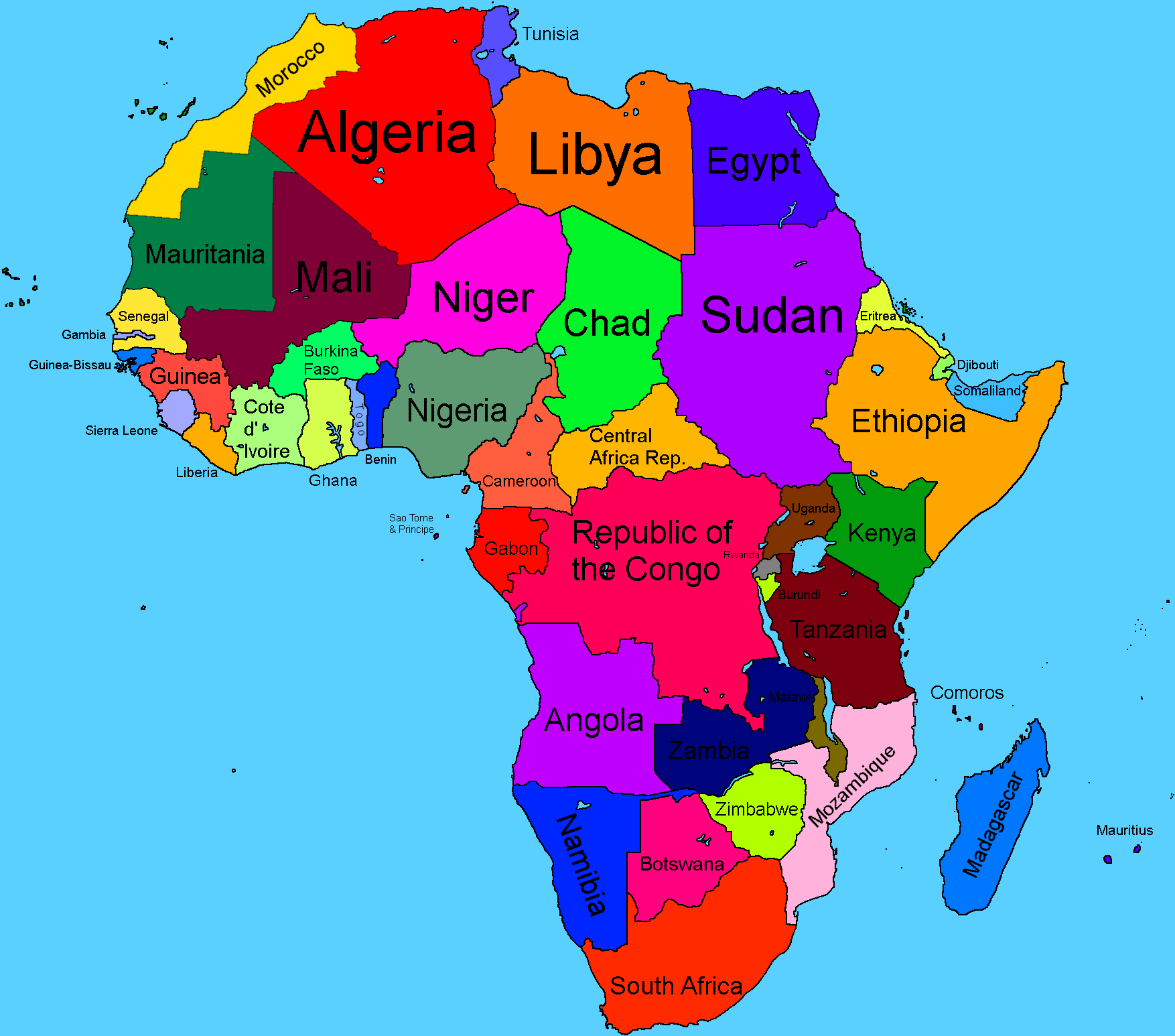
Sunday 15 Dec 2019
1366
Leadership is
key to unlocking sustainable development. Each African country has got
specificities about their levels of development and the context in which they
are at this time. However, the reality is that much is expected to go the same
way when talking of transformation and development. So long time passed when
our countries experienced political and economic instabilities, what are
oftentimes basic to explaining the regress we are having. This is to say that
no matter how much effort we may provide, it is impossible to get our nations
developed with worries of insecurity, corruption at its highest, no investment
in infrastructure, and education mismatch with the market realities.
What is that great thing that every young person finishes his
preferred schooling with a clear goal of contributing to the overall direction
of the nation, region or even continent? The spirit of collaboration instead of
competition, while people bring together
their different experiences and abilities, can also be a
foundation. There is, therefore, an essence that everybody would, no matter
what title or personality he may have, feel the responsibility to make the
country greater and safer.
“Become the kind of leader that people would follow voluntarily;
even if you had no title or positionâ€_ Brian
Tracy said in a way that once seemed to me too demanding, but now I
agree with him confirming that leadership should not be confused with titles
and positions one holds.
If I were an African leader, I would finance development and
transformation making my fellows learn and practice leadership. I would
emphasize, but not be limited, on these areas: Leadership empowerment of
others, youth prioritization, education, modern technology in health,
industrialization, and agriculture adapted to business as well as transparency and
free-corrupt communities.
There is a need to
empower young people and make them more knowledgeable, own responsibilities
that they are sometimes refused saying “you are leaders of tomorrowâ€. As a
leader, there is no way of securing sustainable development and transformation
without youth. Because they are the ones who will be entrusted with the future
responsibilities of the country, they need to be prepared and challenged as
they grow.
Therefore, they must be empowered, trained, and motivated to fit
in those positions. This even raises a questioning on the fact that some young
people are afraid of participating in politics or get there with no clear and
prepared mindsets to move things. A question to ask is “How can youth be
involved and prepared to contribute to this?†The answer is quite simple.
Quality Education!
The education and mentorship they get from a very young age
dictate much on what they will be in the future. The right education is the one
that relies on what the country or even the community needs to get more
sustainable achievements. We will, at the end of the day, question our
educational systems as to whether they are really designed to help our people
develop and achieve the sustainability we are looking for.
What if the courses on leadership, personal growth,
entrepreneurship, civic responsibilities, design thinking, innovation, and
mutual support among fellows were brought in at a very young age so that young
people may grow to have that picture in their minds_ the picture of creating
jobs and opportunities for themselves and others or just being responsible and
accountable while employed. Our young people need to be overtly told that there
is a problem to solve which dates for decades and that it is that our peoples
were made to think that the best solutions to local problems are to be forged
from others. They are therefore needed as answers to this question and they can
do it once they are made real leaders. We strongly need to be promoters and
shapers of a better life for future generations, whatever it takes. “Do not follow
where the path may lead. Go instead where there is no path and leave a trail.â€
_ Ralph Waldo Emerson.
Saying this, we are drawn to a clearer understanding that the
strategic area of education we need is that which will help our countries
develop the level of industrialization to give more jobs and therefore more
chances to populations so that they may assure their wellbeing. The truth is
that better and stronger infrastructure is needed to make it possible and our
young people should be involved in this technology journey so that it may last
longer and keep on improving. The adaptation of agriculture, health care with
modern technologies; entrepreneurship, business, trade to the opportunities and
human resources available locally are keys to making this a success.
Collaboration not competition within the country and a
well-planned partnership with investors and funders from out is primarily
needed. I am more interested in how local people can be made thinkers in the
way that their ideas are no longer confined in getting helped; sustained by
others from out but seek solutions for and by themselves. This mind-set of
needing others for collaboration and sustaining each other rather than getting
survival from them is crucial so that our people may feel that their identity
is too important to let it in others' hands.
One of the greatest challenges one may have is to have his
project followed and funded by someone else. It is true that partnership here
is needed, but what ensures that the outcome is going to be a win-win game so
that none of the stakeholders loses? Therefore, self-sufficiency combined with
calculated hospitality concerning partners from outside the countries in the
case of national leadership or even local and international stakeholders in
case of an enterprise leadership are highly required. I would make sure that on
projects that local people are not able to fund and complete themselves, there
is to be much fair collaboration based on partnership with people who
understand the basic values and orientations of the local policies.
As an African leader, I would put more emphasis on the
modernization of our agriculture. It is true that some African countries have
fertile soils and they are well exploited to cover all the local nourishment
needs. However, there are surely some other countries, which have serious
problems with agricultural production to the extent that they are obliged to
get some from abroad. This is horrible to a continent with such rich soil and
hospitable weather towards agriculture! But again, those countries which cover
their needed food should produce much and make it a business for exports.
Needing nothing like food to import from abroad is primary to
the people to have food security, which is a threat to many African nations for
diverse reasons.
It is not only having bright graduates in Agricultural and food
sciences faculties that count, but also making them apply that knowledge and do
as much research as possible in agriculture regarding the needs and the type of
soil as well as the types of plants ready to grow. As I mentioned before,
modern technologies should not be used only in education, health and some other
domains of the life of the nation. It must find a place in agriculture as well.
This should facilitate making it the best it can be. Food companies that
transform agricultural products to appeal and compete on continental and even
international markets should be put forward and followed as it can generate
much money for exporting countries.
Finally, all that I would seek and succeed in building is
nothing without transparency. Corruption is a viral epidemic that can infect and
change great achievements into nothing. Apart from that, it is quite impossible
to have a sustainable development, socio-economic stability and well-being of
people, it destroys and buries what valuable societies may have achieved. It is
sad that so many opportunities that the masses were supposed to have to
facilitate their growth are squeezed by an individual or a small group of
persons because of the power they hold. Power should be used to support and
help masses realize the greatest possible goals since they are the very ones
who put their leaders in those seats. It is a responsibility then, not only to
be serviceable for them but to be there as who were sent for a noble task to
accomplish on the masses’ behalf.
Rolling up, I would be that leader who makes leaders. For many reasons I talked about in this essay, it is impossible to succeed on big projects as a leader without having strong and visionary people around you. Being passionate about leadership and allotting my energy to build a reliable generation that can unlock a NEW Africa of growth and development can get me to all these, I said. I would not be prouder of talking of unreal projects because it sounds better in the ears of people than showing achievements. It is, however, more important to show acts than empty promises as the latter cannot last and impact the generations we care much about. Lao Tzu once said, “A leader is best when people barely know he exists when his work is done, his aim fulfilled, they will say: We did it ourselves.†That is why the day of entering the office should not be the one of jubilation, but the one of reflection about how useful I will be for the people whose better lives are put on my shoulders. I should rather think of how much I will have satisfied them on the day of my departure from the office.
By Cédrick Irakoze (Burundi),
ISERH Associate
Ambassador, Class 3
Young African Leaders
Initiative Fellow, Cohort 35
Recruitment Intern at
Translators without Borders,
Co-founder and COO of
Rundi Language Hub
Author and Translator


0 Comments